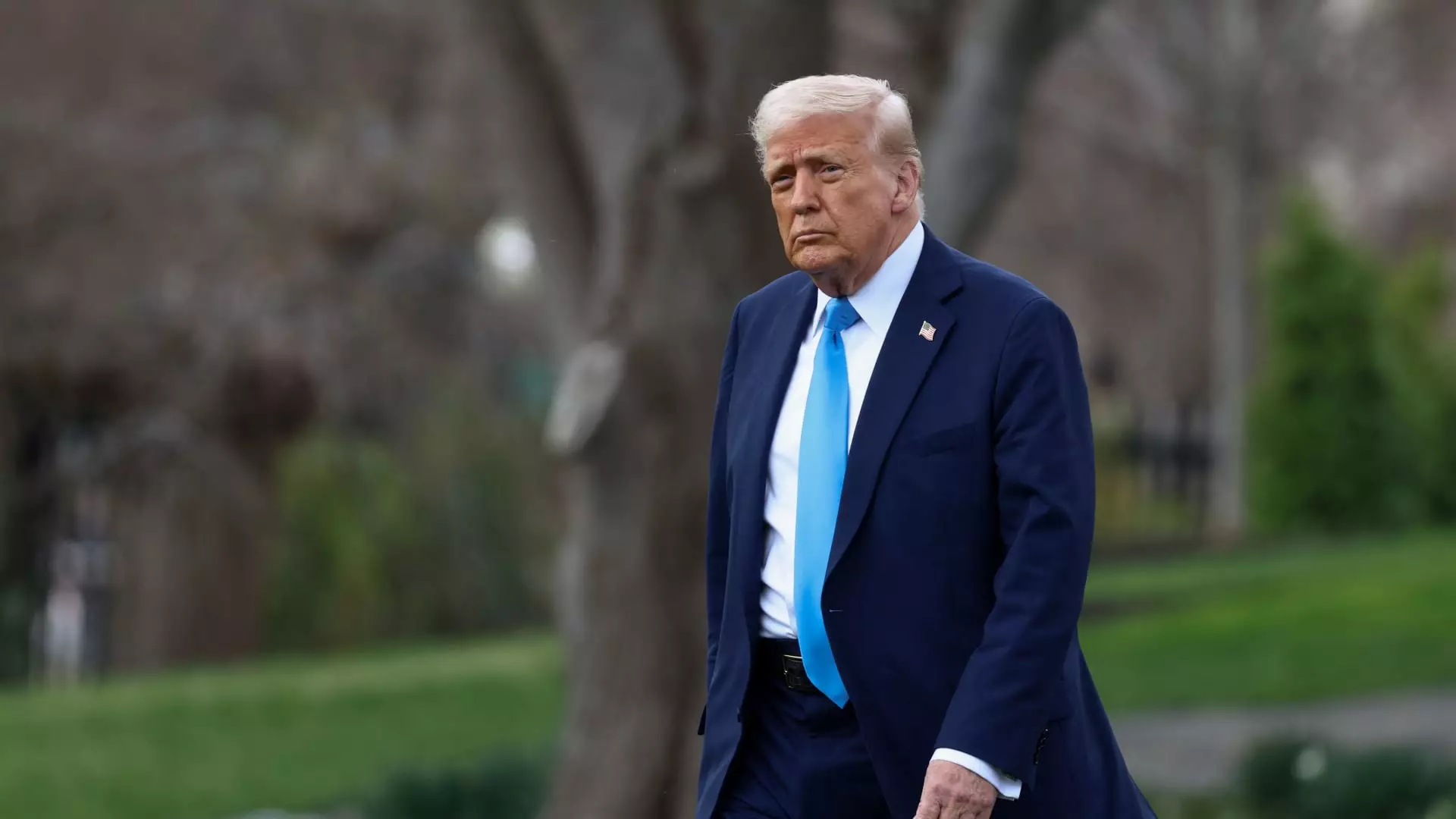In a captivating spectacle of political theater, President Donald Trump recently exhibited an intense emotional reaction to comments made by Russian President Vladimir Putin regarding Ukraine’s leadership. The exchange has ignited a blend of outrage and confusion, highlighting a troubling gap in American foreign policy under Trump. Rather than displaying the assertive leadership expected from a world superpower, Trump’s response signals a profound inadequacy, particularly in the wake of a dire conflict like the one in Ukraine. This reaction is emblematic of a broader peril — when anger becomes the primary mode of diplomatic engagement, it risks further entrenching divisions rather than healing them.
Trump’s vocal discontent with Putin’s dismissal of Ukrainian President Volodymyr Zelenskyy can be seen as a knee-jerk reaction, yet it also exposes the fragility of his administration’s stance on international crises. Calling out Putin for suggesting a transitional government in Ukraine reflects an underlying fear of losing credibility on the global stage. This is particularly striking considering Trump’s own past criticisms of Zelenskyy. By oscillating between fiery condemnation of Putin and previous disparagement of Ukraine’s leadership, he showcases an alarming lack of consistency — a trait that can significantly undermine U.S. influence and authority abroad.
Uneasy Alliances: The Role of Tariffs and Threats
In the same breath that Trump articulated his disdain for Putin’s comments, he also gestured toward implementing harsh tariffs on Russian oil as a retaliatory measure. The prescribed 25% tariff would be nothing short of an economic weapon aimed at a critical resource. While the notion of using tariffs as a means of diplomatic pressure is not inherently flawed, Trump’s belligerent tone raises questions about the efficacy of such tactics. It begs the question: can threats truly forge peace, or do they merely exacerbate tensions?
Trump’s belligerence fails to account for the interconnectedness of the global economy. A rash tariff might hurt Russia economically, but it also has the potential to adversely affect American consumers and businesses linked to the energy sector. This calculation implies a worrying reality: decisions driven by anger rather than strategic foresight can lead to adverse outcomes for the very constituents Trump seeks to protect.
Moreover, Trump’s threats of further military action against Iran, if viewed as an extension of his reaction to Putin, hint at a troubling pattern of treating international relations as a zero-sum game instead of complex diplomatic engagements. The repercussions of a unilateral approach based around anger could incite not only retaliatory measures from Iran but also alienate key allies who may view such posturing as reckless.
The Illusion of Control: A Relationship Built on Fury
As Trump stated, he possesses a “very good relationship” with Putin — a precarious claim considering the ongoing hostilities in Ukraine and the patterns of aggression that have characterized Russia’s activities on the global stage. His assertion that “the anger dissipates quickly … if he does the right thing” portrays a misconceived notion of control in international relationships. It assumes that personal rapport can offset systemic geopolitical challenges.
This attitude not only diminishes the complexity of global diplomacy but also risks naïveté in underestimating the motivations and strategies of adversarial leaders like Putin. Trust, especially in the context of international politics, cannot simply be measured through personal bonds. Relationships should be rooted in mutual respect and recognized strategic interests, rather than a transactional ebb and flow of emotions.
A Center-Left Perspective: The Need for Mature Diplomacy
From a center-left liberal viewpoint, the need for a recalibrated diplomatic strategy is apparent. The world requires leaders who can temper their emotions and approach international conflicts with both empathy and insight. Engagement with adversaries should not rely on outbursts or threats but should instead focus on fostering dialogue that acknowledges mutual concerns and paves the way for sustained peace.
The dangers of using anger as a primary instrument in diplomacy are evident. It reveals vulnerabilities that adversaries can exploit and obscures opportunities for constructive interaction. As we navigate the contemporary geopolitical landscape fraught with tensions and complexities, it becomes essential for U.S. leadership to embrace a paradigm that prioritizes measured engagement over emotional volatility. By doing so, we can aspire to not only maintain our global authority but also promote a more peaceful and collaborative world.


Leave a Reply